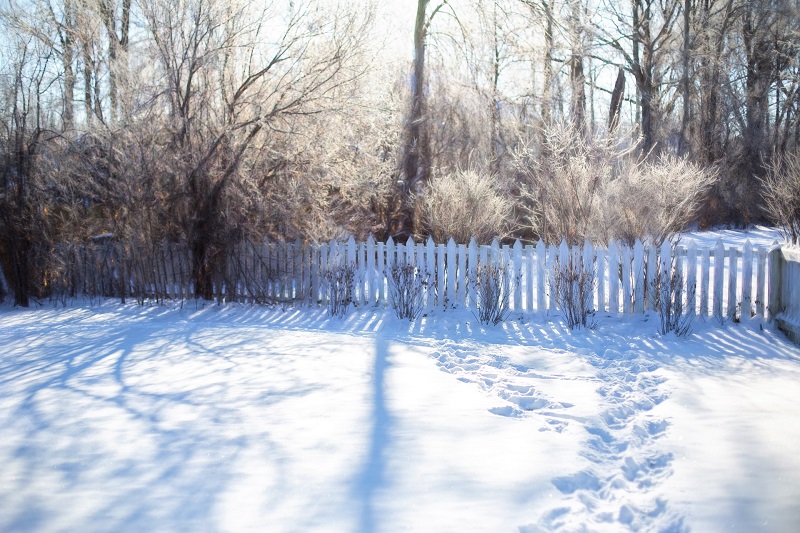Tree Care in Newark, DE: Winter Tree Problems
Tree care in Newark, DE is an all-year activity. During winters in the Northeast, many species of trees and shrubs go dormant and stop producing new branch and leaf growth. In some ways, this dormancy is similar to certain mammals, such as grizzly bears that hibernate throughout the coldest months and wait for the spring to jump back into activity. However, trees are unlike these animals in that they are unable to move to a safe and snug hideaway and are often exposed to the most intense of weather conditions, which can lead to winter tree problems.
Harsh winter weather in Delaware can be quite stressful on trees, particularly on young trees and newly planted trees. One key aspect of tree care in Wilmington, DE is inspecting trees throughout the winter to ensure they are successfully withstanding the wind, cold weather, and other exterior forces.
Three Common Problems for Winter Tree Care in Newark, DE
These common winter tree problems affect trees all across Newark, DE. The harsh winter weather, including the sun and wind, can damage a tree’s roots, bark, and branches. Other issues involve pests and other harmful insects. Keeping an eye out for these issues will go a long way to ensuring your trees’ health and beauty.
1. Winter Drought
Winter drought is a common issue mostly impacting northeastern evergreens. This type of drying out happens when trees lose more water than they can absorb. The ground freezes and the soil is either frozen or simply too cold for normal processes. Symptoms of winter drought include a browning of the tree’s leaves and twig and branch dieback.
To avoid this problem, proper tree care in Newark requires regular fertilizing and watering before the dormant season to promote tree health. A thick layer of mulch may also help prevent soil moisture loss and reduce risks of freezing.
2. Sun Scalding
Winter sun scalding is another common winter tree problem. Sun scalding is most common during clear, sunny winter days when the sun shines directly on a tree’s trunk and warms the tree up. This heat from the sun triggers a tree growth response. Once the sun sets and the temperature drops again, the new tissue growth is susceptible to damage (such as being frozen from snow and ice), and the tree is at risk of cracking and splitting.
Sun scald can sometimes be prevented with reflective tree wraps. Arborists can wrap the trunk, after the tree has gone dormant for the winter, to reflect the sun’s heat.
3. Bagworms
Bagworms do their damage during the summer when the larvae hatch and feed on your beautiful greenery. In the winter when the branches are bare, take time to inspect your trees to look for the tear-drop shaped bags where bagworm eggs reside. Removing them at this point is simple and will help prevent summer infestation.
Contact Stein Tree Service For Professional Tree Care in Newark, DE
You may run into other winter tree problems that can cause further damage to your trees and property. For help in ensuring your trees and shrubbery survive the winter and thrive in the spring, contact our team of professional tree care specialists and certified arborists. At Stein Tree Service, we are dedicated to providing skilled tree care in Newark, DE and surrounding areas.
CALL US
610.723.8072
Serving DE and PA
REQUEST A FREE, NO OBLIGATION CONSULTATION
FEATURED PROGRAMS
Stein Tree Earns Permit to Work in Spotted Lanternfly Quarantine Areas
Stein has a permit to work in spotted lanternfly quarantine areas in Pennsylvania and Delaware. Tree Service Companies have to be trained in proper moving and disposal of materials to avoid spread of the spotted lanternfly and Stein has completed the training courses. Learn more.
Emerald Ash Borer Inspection
In the spring, destructive emerald ash bore![]() r (EAB) adult beetles begin to emerge. These invasive pests can destroy your ash trees. Our specialists are certified to treat for EAB in Pennsylvania and Delaware. For a free consultation, contact us today.
r (EAB) adult beetles begin to emerge. These invasive pests can destroy your ash trees. Our specialists are certified to treat for EAB in Pennsylvania and Delaware. For a free consultation, contact us today.


